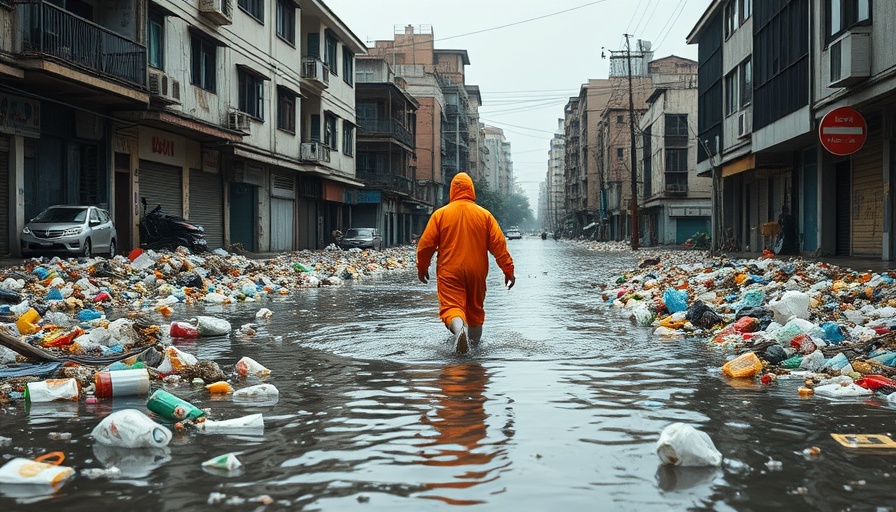
Indonesia's Biofuel Mandate: A Double-Edged Sword for the Environment
The recent push by Indonesia to increase its biodiesel mandate has placed the nation’s commitment to sustainable living under scrutiny. While the initiative appears beneficial for the promotion of green energy, experts warn that such policy shifts could inadvertently lead to an expansion of plantations, driving significant deforestation in a region already grappling with environmental challenges.
Cross-Border Haze Risks on the Rise
The dire consequences of intensified biofuel production are starting to manifest in environmental conditions. The Singapore Institute of International Affairs (SIIA) recently revised its haze risk assessment for the region, shifting from a "green" to an "amber" alert, indicating a moderate risk of severe haze affecting Indonesia, Malaysia, and Singapore for the remainder of the year. This change follows an uptick in hot spots in Sumatra that have led to unhealthy air quality across many western states in Peninsular Malaysia.
A Call for Caution and Action
Simon Tay, chair of the SIIA, underscored the importance of proactive measures to counteract the rising threats of fire and deforestation. With high palm oil prices contributing to pressures on sustainability, the think tank suggests that governments and relevant organizations must act to mitigate the hazards posed by plantation expansion. This focus on environmental conservation echoes broader discussions about sustainable practices among eco-friendly communities.
The Political Landscape and its Impact on Haze
Adding layers to the complexities is the uncertainty around the continuity of forestry policies under President Prabowo Subianto’s administration. The intricate relationship between political decisions and environmental outcomes raises pressing questions about the efficacy of current regulations. Without robust checks, policies designed to encourage biofuel production might inadvertently facilitate harmful agricultural practices.
Linking Biodiversity and Biofuel Production
As the issue unfolds, it becomes increasingly important to appreciate the broader ecological implications of biofuel cultivation. Biodiversity is not merely an environmental concern; it plays a critical role in climate action and sustainability initiatives globally. Wetlands and forests act as natural carbon sinks, hence their destruction could exacerbate climate change—a concern particularly relevant to eco-conscious communities.
Understanding the Contributions of Local Initiatives
Amid growing environmental risks, local initiatives focused on sustainable agriculture, such as community gardens and organic products, are gaining traction. These green practices promote food sovereignty and environmental stewardship, offering viable alternatives to the harmful ramifications of biofuel mandates. Eco-friendly transportation and the use of renewable resources further enhance community-led efforts towards sustainability.
Future Predictions: Navigating Toward Sustainable Solutions
The trajectory of Indonesia’s biofuel policy remains uncertain, but the need for sustainable solutions has never been more evident. As Indonesia navigates this challenging landscape, it serves as a critical case study in the balancing act of fostering economic growth while ensuring environmental protection. The global community is watching—and it’s evident that both immediate action and long-term strategies are essential to curb the adverse effects related to deforestation and haze.
In conclusion, as eco-friendly readers, it’s imperative we stay informed about these developments and participate in dialogues that promote sustainable futures. Whether it’s through advocating for responsible consumption or supporting ethical sourcing, each action counts towards our collective environmental impact. Join the conversation on sustainable practices today!
 Add Row
Add Row  Add
Add 



Write A Comment